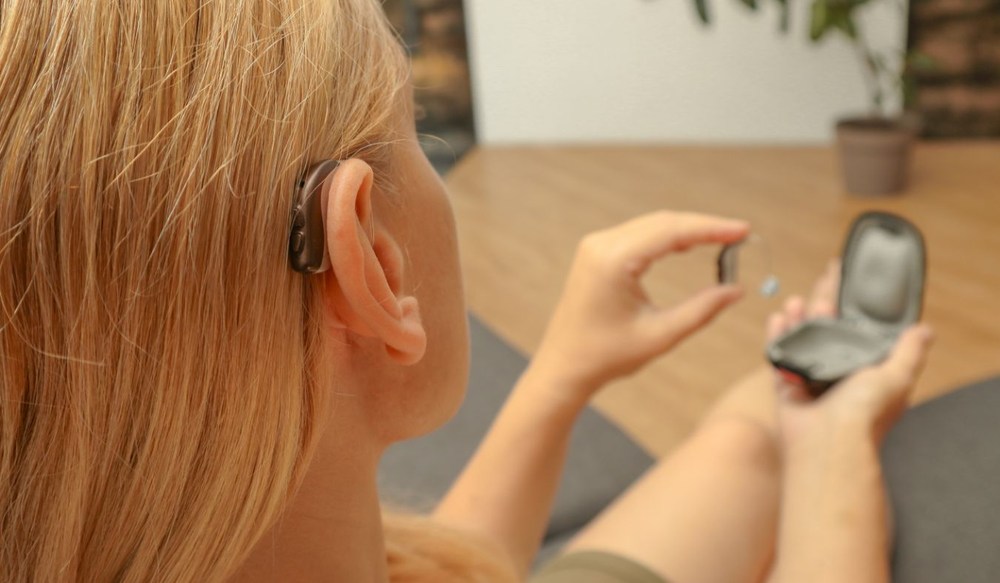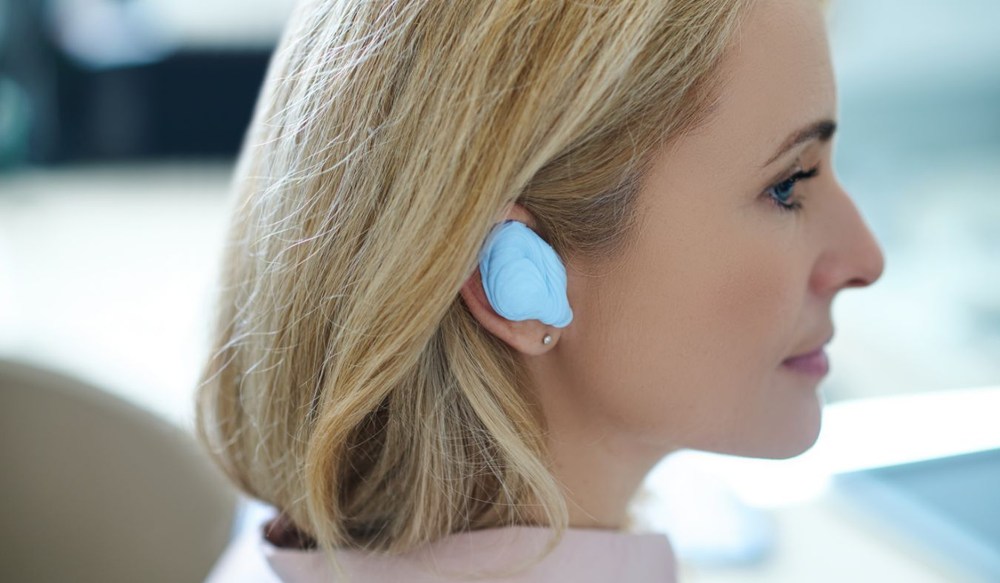Can Hearing Loss Be Reversed? When It’s Possible and When It’s Not
When hearing begins to change, it’s natural to wonder whether it can get
NEW! Improve your hearing & how your brain processes sound with the new LACE AI PRO. Learn More

By: admin | May 23, 2025
Your hearing aids are important tools that help you stay connected to conversations, enjoy entertainment and maintain independence in daily activities. Like any valuable device you use every day, they occasionally need maintenance or repairs to keep them working their best. Understanding the warranty and repair options for your hearing aids helps you protect your investment and ensures you’re never without the hearing support you need.
We know how frustrating it can be when your hearing aids aren’t functioning properly. A comprehensive warranty provides peace of mind, covering many common issues that may arise. Taking good care of your hearing aids and knowing what your warranty covers means you can address problems quickly before they affect your ability to hear clearly. Our goal is to help you keep your hearing aids in excellent working condition so you can focus on living your life, not worrying about repairs or unexpected costs.
Choosing the right hearing aids involves more than just addressing hearing loss – it’s about finding devices that suit your daily routines, preferences and physical needs. The severity of your hearing loss is a good starting point, as some devices are built for mild to moderate loss while others are designed for more advanced needs. From there, you’ll want to think about your lifestyle. If you often find yourself in noisy environments like restaurants or meetings, features like directional microphones and background noise reduction can make a big difference. If you live a quieter life at home, simpler technology might meet your needs without added complexity.
Dexterity is another factor that can guide your choice. Some hearing aid styles, like completely-in-canal (CIC) models, are smaller and less visible, but they may be harder to handle if you have limited finger mobility. Behind-the-ear (BTE) models, on the other hand, are easier to manage and offer more space for added features like rechargeable batteries or stronger amplification. Ease of use matters, too – many devices now come with smartphone compatibility, allowing you to adjust volume or switch settings with just a tap on your screen. That can be especially useful if you prefer minimal handling of the devices themselves.
Budget also plays a role, and it’s worth discussing with your audiologist how to balance this with the features that will benefit you most. It’s not about choosing the most advanced model, but the one that gives you the best support for how you live your life. Your specialist will walk you through the options and help you understand the pros and cons of each model and feature set. The goal is to find a device that feels comfortable, functions effectively in the environments you spend time in and works seamlessly with your physical and technological preferences.
When it comes to hearing aids, the cost reflects a range of factors that contribute to how well the devices match your needs and lifestyle. One of the biggest influences is the level of technology involved. Some people benefit from hearing aids with basic sound amplification, while others prefer or require more advanced features, like directional microphones, background noise reduction or Bluetooth connectivity for streaming. The more tailored the technology is to your everyday environments, the more it supports clear, comfortable listening.
The variety of styles and models also plays a part. Some devices are designed to sit behind the ear, while others are nearly invisible within the ear canal. Each style has its own set of features and benefits that suit different preferences and degrees of hearing difficulty. Factors like rechargeable batteries, automatic environmental adjustments and smartphone app compatibility can also affect the final cost, depending on what features are most important to you.
Beyond the device itself, the investment in hearing aids includes the extensive research, engineering and testing that go into developing modern hearing solutions. Manufacturers continue to improve how devices perform in real-world situations, making them more effective, user-friendly and adaptable than ever. When you choose a hearing aid, you’re also benefiting from this ongoing innovation – technology that’s been carefully developed to help you hear better in the situations that matter most.
A typical hearing aid warranty offers peace of mind by providing coverage for certain repairs, malfunctions or damage that might occur during a specified period. Most warranties include coverage for defects in materials and workmanship, ensuring that if the device stops working due to an issue not caused by user error, repairs or replacements may be covered. The length of the warranty can vary, but it’s common to see warranties that last one to three years, depending on the manufacturer and the specific model of the hearing aid. Some warranties may also include limited coverage for repairs related to normal wear and tear.
In addition to the standard coverage, many hearing aid warranties also provide options for extended service plans that may cover more comprehensive needs, like accidental damage or loss of the device. For example, certain plans might cover damage caused by water, drops or other physical incidents that might occur outside of normal use. Some warranties also offer a trial period during which you can return the hearing aids if they don’t meet your needs, allowing for a more flexible adjustment period. It’s important to note that hearing aid warranties may not cover damage due to misuse or accidents, like dropping them or exposing them to moisture.
Since warranties can vary greatly between different brands and models, it’s essential to thoroughly review the specific warranty details with your audiologist or the hearing aid manufacturer. This will help you understand what’s included in the coverage and any potential additional costs, like fees for battery replacements or cleaning services. Knowing exactly what your warranty covers can save you from unexpected expenses down the road and ensure you’re fully supported if your hearing aids require repairs or service.
When considering whether an extended warranty for your hearing aids is worth the cost, there are several factors to take into account. On average, most people keep their hearing aids for about five years, but the manufacturer warranties typically only cover the first one to three years. Extended warranties, often provided by third-party companies or hearing care providers, can offer extra protection after the initial warranty period expires. These warranties can help cover repairs or replacement costs, which may be a worthwhile investment for individuals planning to hold on to their hearing aids longer or those who are concerned about potential damage or malfunction over time.
The decision to purchase an extended warranty should be based on your individual needs and circumstances. If you tend to replace your hearing aids every few years, or if you’re confident that your devices will remain in good condition, an extended warranty may not be necessary. However, for individuals who expect to keep their hearing aids for a longer period, or those on a fixed budget where the cost of repairs or replacements may be difficult to manage, an extended warranty can provide valuable peace of mind. Additionally, if your lifestyle includes activities that may increase the likelihood of losing or damaging your devices, or if you have experienced frequent repairs within the initial warranty period, an extended warranty may be a sensible choice.
When considering a warranty for your hearing aids, it’s important to fully understand what is and isn’t covered. Your audiologist is the best resource for clarifying the details of your warranty, as policies can vary significantly between manufacturers and models. Asking the right questions will help ensure that you are getting the protection you need and will prevent any surprises down the road. Here are some questions to ask your audiologist about your hearing aid warranty:
Taking the time to ask these questions will ensure that you understand exactly what your warranty entails. It will also help you make an informed decision about whether you need additional coverage, giving you confidence that your hearing aids will continue to work well for years to come.
Using your hearing aid warranty effectively involves understanding the process for making a claim and ensuring that your device is properly maintained throughout its coverage period. First, it’s essential to know what types of issues are covered by your warranty. Most standard warranties include coverage for manufacturing defects, like problems with sound quality or functionality, but they may not cover damage due to accidents, neglect or misuse. If your hearing aid is malfunctioning and falls within the warranty’s terms, you will need to contact your audiologist or the manufacturer directly. They can guide you through the process, which may include sending the device in for repair or replacement.
If you do need to use your warranty, it’s important to keep records of your hearing aids’ purchase date, any maintenance or repairs done under the warranty and the specifics of any issues you’ve encountered. Your audiologist will often need to provide documentation, and the manufacturer may require proof of purchase.
Be sure to ask your audiologist for guidance on warranty-related repairs or replacements. They can help you understand the procedure, which might involve sending the device to a service center or having a loaner aid while your device is being repaired. Taking proper care of your hearing aids, following cleaning and maintenance guidelines and staying aware of your warranty’s terms will help you make the most of your coverage and avoid unnecessary costs.
Your care doesn’t stop once you receive your hearing aids. Ongoing support and maintenance are essential for ensuring your devices continue to work at their best. Regular professional cleaning and adjustments help keep your hearing aids performing optimally. Over time, earwax, moisture and debris can affect sound quality and the internal components of your devices. A specialist can thoroughly clean and inspect your hearing aids to prevent these issues and extend their lifespan.
Beyond cleaning, your audiologist will also provide valuable adjustments to match your evolving needs. Whether it’s fine-tuning the volume, adjusting the settings for different listening environments or addressing any comfort issues, they’re there to ensure your hearing aids continue to meet your specific needs. If any repairs are needed, they’ll guide you through the warranty process, offer support for repairs and ensure that your hearing aids stay functional.
Hearing aids are essential tools that can improve your life by enhancing communication and helping you maintain independence. However, like any device used daily, they require attention to ensure they continue to function properly. Knowing how to care for your hearing aids, understanding what your warranty covers and staying on top of repairs will help you get the most out of your devices. Working closely with an audiologist ensures that your hearing aids stay in top condition and continue to serve your needs, providing ongoing support when necessary.
If you experience any issues with your hearing aids or need assistance understanding your warranty, we’re here to help. The team at Innovative Hearing Care in Riverside, CA, is ready to guide you through any concerns you may have, making sure you receive the support you need. Feel free to reach out to us at (951) 291-9081 to get the help you deserve and keep your hearing aids working at their best.
Tags: benefits of hearing aids, hearing aid repair, hearing aid styles

When hearing begins to change, it’s natural to wonder whether it can get
By: admin | January 19, 2026

Autumn weather brings a combination of conditions that can affect your
By: admin | November 18, 2025

Warm weather brings out activities that can put your hearing at risk in
By: admin | September 24, 2025
